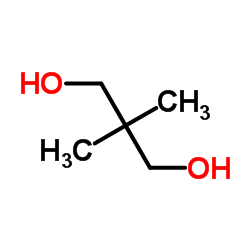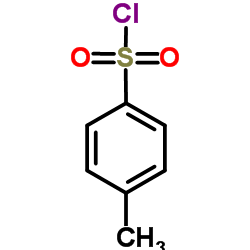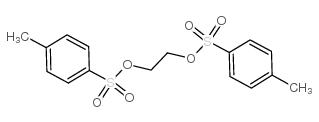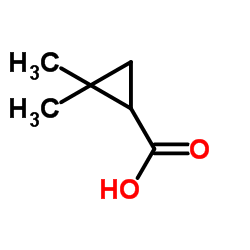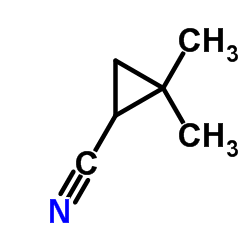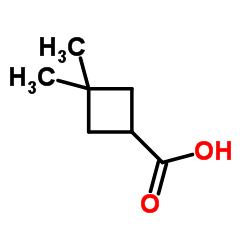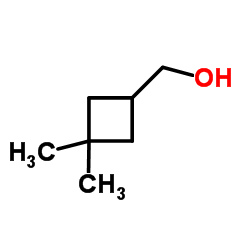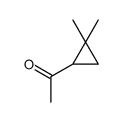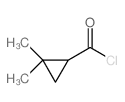22308-12-9
| 中文名 | 1,3-二(甲苯磺酰氧基)-2,2-二甲基丙烷 |
|---|---|
| 英文名 | [2,2-dimethyl-3-(4-methylphenyl)sulfonyloxypropyl] 4-methylbenzenesulfonate |
| 中文别名 |
2,2-二甲基-1,3-丙二醇双(对甲苯磺酸)酯
1,3-双(甲苯磺酰氧基)-2,2-二甲基丙烷 1,3-双(对甲苯磺酰氧基)-2,2-二甲基丙烷 2,2-二甲基-1,3-丙二醇二甲苯磺酸盐 |
| 英文别名 |
Neopentyl Glycol Ditosylate
2,2-Dimethyl-1,3-propanediol Ditosylate ditosylate of 2,2-dimethyl-1,3-propanediol MFCD00110766 1,3-Bis(tosyloxy)-2,2-diMethylpropane 1,3-Bis(p-toluenesulfonyloxy)-2,2-dimethylpropane |
| 密度 | 1.254g/cm3 |
|---|---|
| 沸点 | 568.9ºC at 760mmHg |
| 熔点 | 119.0 to 123.0 °C |
| 分子式 | C19H24O6S2 |
| 分子量 | 412.52000 |
| 闪点 | 297.9ºC |
| 精确质量 | 412.10100 |
| PSA | 103.50000 |
| LogP | 5.60200 |
| 外观性状 | 固体;White to Almost white powder to crystal |
| 蒸汽压 | 2.27E-12mmHg at 25°C |
| 折射率 | 1.551 |
| 储存条件 | |
| 稳定性 | |
| 分子结构 | 、分子性质数据: 1、 摩尔折射率:104.99 2、 摩尔体积(cm3/mol):328.7 3、 等张比容(90.2K):850.6 4、 表面张力(dyne/cm):44.8 5、 极化率(10-24cm3):41.62 |
| 计算化学 | 1.疏水参数计算参考值(XlogP):4.1 2.氢键供体数量:0 3.氢键受体数量:6 4.可旋转化学键数量:8 5.互变异构体数量:无 6.拓扑分子极性表面积104 7.重原子数量:27 8.表面电荷:0 9.复杂度:598 10.同位素原子数量:0 11.确定原子立构中心数量:0 12.不确定原子立构中心数量:0 13.确定化学键立构中心数量:0 14.不确定化学键立构中心数量:0 15.共价键单元数量:1 |
| 更多 | 1.性状:未确定 2.密度(g/mL,25/4℃):未确定 3.相对蒸汽密度(g/mL,空气=1):未确定 4.熔点(ºC):未确定 5.沸点(ºC,常压):未确定 6.沸点(ºC,5.2kPa):未确定 7.折射率:未确定 8.闪点(ºC):未确定 9.比旋光度(º):未确定 10.自燃点或引燃温度(ºC):未确定 11.蒸气压(kPa,25ºC):未确定 12.饱和蒸气压(kPa,60ºC):未确定 13.燃烧热(KJ/mol):未确定 14.临界温度(ºC):未确定 15.临界压力(KPa):未确定 16.油水(辛醇/水)分配系数的对数值:未确定 17.爆炸上限(%,V/V):未确定 18.爆炸下限(%,V/V):未确定 19.溶解性:未确定 |
|
Section I.Chemical Product and Company Identification Chemical Name 1,3-Bis(tosyloxy)-2,2-dimethylpropane Portland OR Synonym1,3-Propanediol, 2,2-dimethyl-, 1,3-bis(4-methylbenzene sulfonate) (CA INDEX NAME); 1,3-Bis(p-toluenesulfonyloxy)-2,2-dimethylpropane; 2,2-Dimethyl-1,3-propanediol Ditosylate;
Neopentyl Glycol Ditosylate Chemical FormulaC19H24O6S2 CAS Number22308-12-9 Section II.Composition and Information on Ingredients Chemical NameCAS Number Percent (%)TLV/PELToxicology Data 1,3-Bis(tosyloxy)-2,2-dimethylpropane22308-12-9 Min. 98.0 (GC) Not available.Not available. Section III. Hazards Identification No specific information is available in our data base regarding the toxic effects of this material for humans. However, Acute Health Effects exposure to any chemical should be kept to a minimum. Skin and eye contact may result in irritation. May be harmful if inhaled or ingested. Always follow safe industrial hygiene practices and wear proper protective equipment when handling this compound. Follow safe industrial hygiene practices and always wear proper protective equipment when handling this compound. CARCINOGENIC EFFECTS : Not available. Chronic Health Effects MUTAGENIC EFFECTS : Not available. TERATOGENIC EFFECTS : Not available. DEVELOPMENTAL TOXICITY: Not available. Repeated or prolonged exposure to this compound is not known to aggravate existing medical conditions. Section IV.First Aid Measures Eye ContactCheck for and remove any contact lenses. In case of contact, immediately flush eyes with plenty of water for at least 15 minutes. Get medical attention. Skin ContactIn case of contact, immediately flush skin with plenty of water. Remove contaminated clothing and shoes. Wash clothing before reuse. Thoroughly clean shoes before reuse. Get medical attention. InhalationIf the victim is not breathing, perform mouth-to-mouth resuscitation. Loosen tight clothing such as a collar, tie, belt or waistband. If breathing is difficult, oxygen can be administered. Seek medical attention if respiration problems do not improve. INDUCE VOMITING by sticking finger in throat. Lower the head so that the vomit will not reenter the mouth and throat. Ingestion Loosen tight clothing such as a collar, tie, belt or waistband. If the victim is not breathing, perform mouth-to-mouth resuscitation. Examine the lips and mouth to ascertain whether the tissues are damaged, a possible indication that the toxic material was ingested; the absence of such signs, however, is not conclusive. SEEK IMMEDIATE MEDICAL ATTENTION in case of ingestion of a radioactive material. Section V.Fire and Explosion Data Not available. May be combustible at high temperature.Auto-Ignition Flammability Flash PointsFlammable LimitsNot available. Not available. Combustion ProductsThese products are toxic carbon oxides (CO, CO2), sulfur oxides (SO2, SO3...). Fire Hazards Not available. Risks of explosion of the product in presence of mechanical impact: Not available. Explosion Hazards Risks of explosion of the product in presence of static discharge: Not available. Fire Fighting MediaSMALL FIRE: Use DRY chemical powder. and InstructionsLARGE FIRE: Use water spray, fog or foam. DO NOT use water jet. Consult with local fire authorities before attempting large scale fire-fighting operations. Continued on Next Page 1,3-Bis(tosyloxy)-2,2-dimethylpropane Section VI.Accidental Release Measures Spill CleanupUse a shovel to put the material into a convenient waste disposal container. Finish cleaning the spill by rinsing any contaminated surfaces with copious amounts of water. Consult federal, state, and/or local authorities for assistance on Instructions disposal. Section VII. Handling and Storage Handling and StorageKeep away from heat. Mechanical exhaust required. When not in use, tightly seal the container and store in a dry, cool place. Avoid excessive heat and light. Do not breathe dust. Information Section VIII. Exposure Controls/Personal Protection Use process enclosures, local exhaust ventilation, or other engineering controls to keep airborne levels below recommended Engineering Controls exposure limits. If user operations generate dust, fume or mist, use ventilation to keep exposure to airborne contaminants below the exposure limit. Splash goggles. Lab coat. Dust respirator. Boots. Gloves. Suggested protective clothing might not be sufficient; consult a Personal Protection specialist BEFORE handling this product. Be sure to use a MSHA/NIOSH approved respirator or equivalent. Exposure LimitsNot available. Section IX. Physical and Chemical Properties Physical state @ 20°CSolid. (White crystal lumps)Solubility Not available. Not available. Specific Gravity Molecular Weight412.52Partition CoefficientNot available. Boiling PointNot available.Vapor PressureNot applicable. 121°C (249.8°F)Not available. Melting PointVapor Density Refractive IndexNot available.VolatilityNot available. Not available.Not available. Critical TemperatureOdor Not available.Not available. ViscosityTaste Section X.Stability and Reactivity Data This material is stable if stored under proper conditions. (See Section VII for instructions) Stability Conditions of InstabilityNot available. Incompatibilities Reactive with oxidizing agents. Section XI. Toxicological Information Not available. RTECS Number Eye Contact. Ingestion. inhalation. Routes of Exposure Not available. Toxicity Data Chronic Toxic EffectsCARCINOGENIC EFFECTS : Not available. MUTAGENIC EFFECTS : Not available. TERATOGENIC EFFECTS : Not available. DEVELOPMENTAL TOXICITY: Not available. Repeated or prolonged exposure to this compound is not known to aggravate existing medical conditions. No specific information is available in our data base regarding the toxic effects of this material for humans. However, Acute Toxic Effects exposure to any chemical should be kept to a minimum. Skin and eye contact may result in irritation. May be harmful if inhaled or ingested. Always follow safe industrial hygiene practices and wear proper protective equipment when handling this compound. Follow safe industrial hygiene practices and always wear proper protective equipment when handling this compound. Section XII.Ecological Information Not available. Ecotoxicity Environmental FateNot available. Continued on Next Page 1,3-Bis(tosyloxy)-2,2-dimethylpropane Section XIII. Disposal Considerations Waste DisposalRecycle to process, if possible. Consult your local regional authorities. You may be able to dissove or mix material with a combustible solvent and burn in a chemical incinerator equipped with an afterburner and scrubber system. Observe all federal, state and locl regulations when disposing of the substance. Section XIV. Transport Information Not a DOT controlled material (United States). DOT Classification PIN NumberNot applicable. Proper Shipping NameNot applicable. Packing Group (PG)Not applicable. DOT Pictograms Section XV. Other Regulatory Information and Pictograms TSCA Chemical InventoryThis product is NOT on the EPA Toxic Substances Control Act (TSCA) inventory. The following notices are required by 40 CFR 720.36 (C) for those products not on the inventory list: (EPA) (i) These products are supplied solely for use in research and development by or under the supervision of a technically qualified individual as defined in 40 CFR 720.0 et sec. (ii) The health risks of these products have not been fully determined. Any information that is or becomes available will be supplied on an MSDS sheet. WHMIS Classificationnot available (Canada) EINECS Number (EEC)Not available. EEC Risk Statementsnot available SECTION 16 - ADDITIONAL INFORMATION N/A |
|
毒理学数据: 生态学数据:
|
| 危害码 (欧洲) | Xn |
|---|---|
| 安全声明 (欧洲) | S22-S24/25 |
| 海关编码 | 2905199090 |
|
~99% 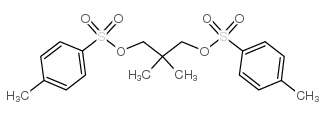
22308-12-9 |
| 文献:Gobbi, Luca Claudio; Gubler, Marcel; Neidhart, Werner; Nettekoven, Matthias Heinrich Patent: US2005/113374 A1, 2005 ; Location in patent: Page/Page column 7; 14-15 ; |
|
~% 
22308-12-9 |
| 文献:Chemische Berichte, , vol. 114, # 4 p. 1551 - 1553 |
| 上游产品 3 | |
|---|---|
| 下游产品 8 | |
| 海关编码 | 2905199090 |
|---|---|
| 中文概述 | 2905199090. 其他饱和一元醇. 增值税率:17.0%. 退税率:13.0%. 监管条件:无. 最惠国关税:5.5%. 普通关税:30.0% |
| 申报要素 | 品名, 成分含量, 用途, 包装 |
| Summary | 2905199090. saturated monohydric alcohols. VAT:17.0%. Tax rebate rate:13.0%. . MFN tariff:5.5%. General tariff:30.0% |


